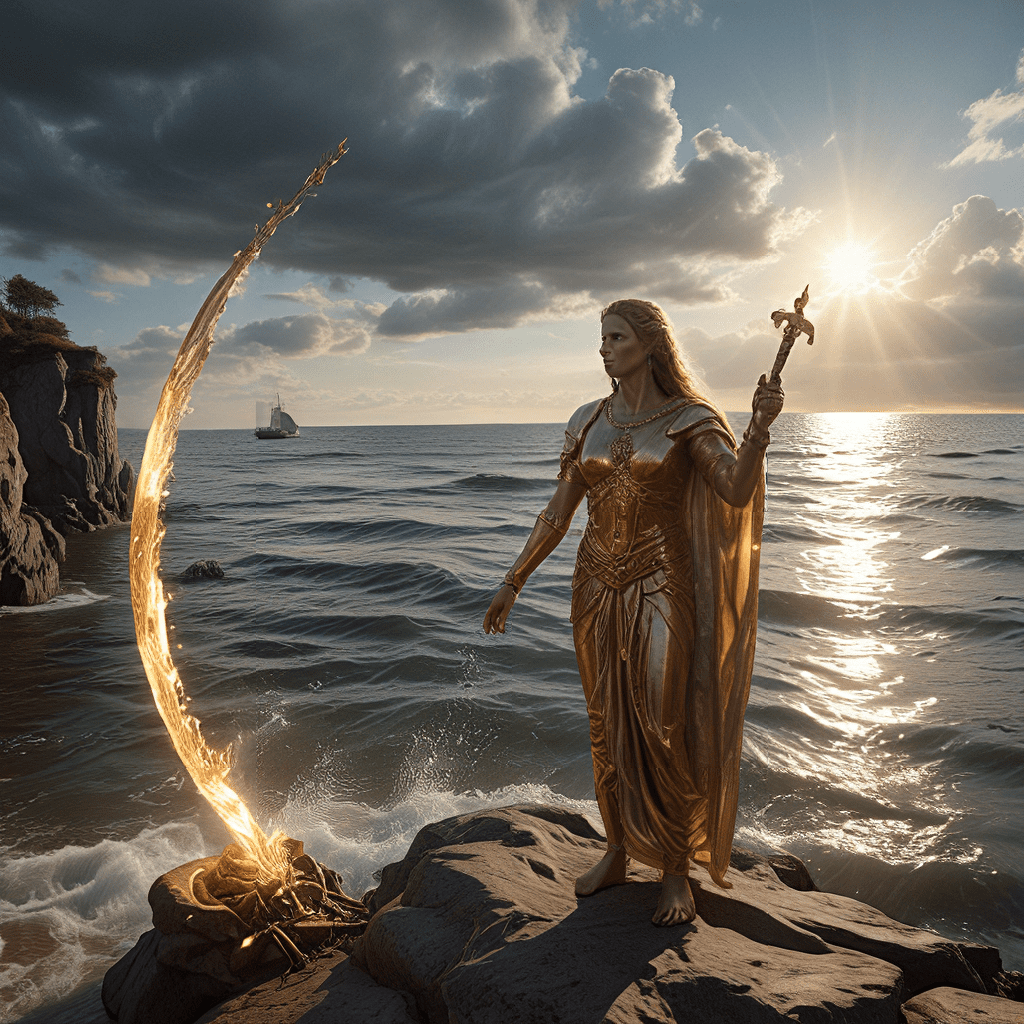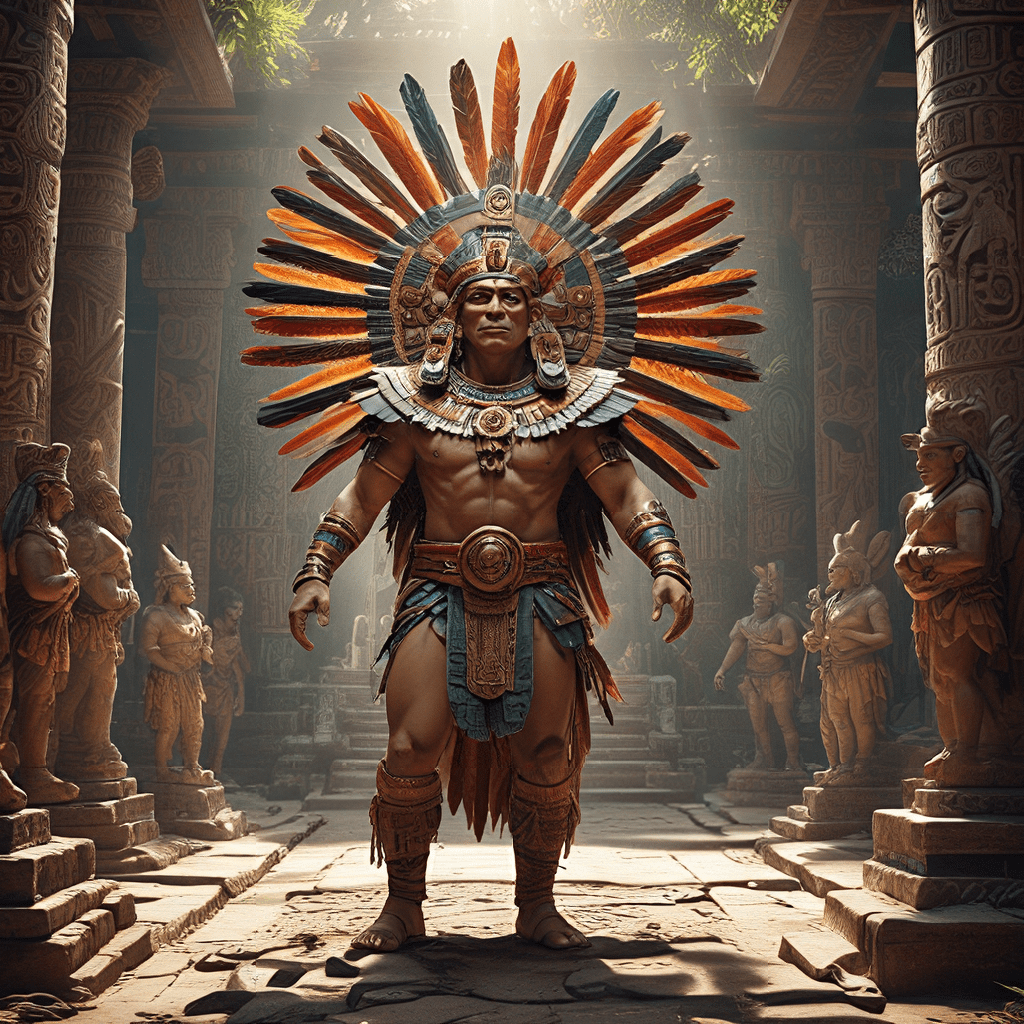Baltic Mythology: Origins and Beliefs
The Baltic people, inhabiting the region around the Baltic Sea, have a rich and vibrant mythology that reflects their close connection to nature and the forces of the cosmos. Their beliefs, passed down through generations, weave a tapestry of gods, spirits, and mythical creatures that shape their worldview. Baltic mythology is characterized by its focus on the natural world and the interconnectedness of all things. They believe in a powerful pantheon of gods, led by Perkūnas, the god of thunder and lightning, who embodies the forces of nature. Other significant gods include Dievas, the sky god, and Žemyna, the earth goddess, who represent the harmony and balance of the natural world.
The Power of Prophecy: A Central Theme
Prophecy plays a central role in Baltic mythology, signifying the deep belief in the ability to foresee the future and understand the will of the gods. The ability to predict events, understand the hidden meanings behind everyday occurrences, and interpret signs and omens was highly valued. Prophecy was not a passive observation of fate, but an active engagement with the divine. The Baltic peoples believed that individuals could receive guidance from the gods through various means, including dreams, visions, and divination rituals.
Divination Practices in Baltic Folklore
Baltic folklore is rich with divination practices that allowed individuals to connect with the unseen world and gain insights into the future. These practices were often tied to specific times of the year, such as the winter solstice, when the boundary between the worlds was believed to be tenuous. Common forms of divination included interpreting the flight of birds, reading animal entrails, or drawing lots using stones or sticks. These practices were not only used to predict the future but to gain guidance in matters of health, love, and fortune.
The Role of Gods and Spirits in Prophecy
The gods and spirits of Baltic mythology played an active role in prophecy, often acting as messengers or intermediaries between the human world and the divine. Spirits associated with specific places, such as forests, lakes, and groves, were believed to hold secrets and knowledge about the future. The gods themselves could choose to reveal their will through dreams, visions, or through the actions of oracles and seers.
The Significance of Dreams and Visions
Dreams and visions were highly valued in Baltic mythology as channels of communication with the spiritual world. Dreams were seen as more than just fleeting images but as messages from the gods, spirits, or ancestors. Individuals who experienced vivid dreams or visions were often considered to have special abilities or a connection to the divine. The interpretation of dreams required skill and knowledge, as they could hold both positive and negative meanings.
The Art of Runes: A Form of Divination
In Baltic mythology, runes are more than just letters; they are ancient symbols that hold mystical power. These symbols, carved onto wood or stone, were believed to connect the physical world with the spiritual realm. They were used for various purposes, including divination, protection, and healing. The art of rune divination, known as "runology," involved arranging the runes in specific patterns, which were then interpreted using intricate knowledge of their meanings and associations. Each rune represented a particular concept, energy, or force, and their combinations revealed insights into a person's path, challenges, and potential.
The Influence of Nature and the Cosmos
Baltic mythology views nature as a powerful source of knowledge and guidance. The changing seasons, celestial movements, and natural phenomena were all believed to hold profound significance. The Baltic people observed the world around them with great attentiveness, seeking clues and insights from the rhythms of nature. The position of the sun, moon, and stars held particular importance in their understanding of time, fortune, and destiny. Natural objects like trees, stones, rivers, and animals were also seen as potential sources of wisdom and prophetic guidance.
The Power of Words and Rituals
In Baltic mythology, words are not just sounds but carry potent energy. The spoken word, chanted incantations, and rituals were believed to influence the world around them. Certain words and phrases were considered sacred and could invoke the power of the gods or spirits. These rituals, often performed during specific times of the year, involved offerings, sacrifices, and symbolic actions that sought to appease the gods or influence destiny. The power of words and rituals was a vital element in Baltic divination practices, allowing individuals to connect with the unseen world and navigate the uncertainties of life.
Prophecy and the Fate of Individuals and Communities
Prophecy played a significant role in the lives of individuals and communities in Baltic mythology. It provided guidance on important decisions, warned of impending dangers, and shaped their understanding of their place in the larger cosmos. Prophecy could influence the course of personal journeys, protect communities from harm, and guide them towards prosperity. Individuals who possessed the gift of prophecy were held in high regard, often serving as advisors, leaders, or mediators between the human and spiritual worlds.
The Legacy of Baltic Divination in Modern Culture
The legacy of Baltic divination practices continues to resonate in modern culture, influencing various aspects of contemporary spirituality, divination, and folklore. The use of runes, the importance of dreams and visions, and the symbolism associated with nature are all echoes of ancient Baltic beliefs. Though much of the original lore has faded over time, elements of Baltic mythology continue to fascinate and inspire, reminding us of the enduring power of prophecy and the human desire to understand the mysteries of the future.
FAQ
What are some common Baltic divination practices?
Some common practices include reading the flight of birds, interpreting animal entrails, drawing lots using stones or sticks, and interpreting dreams and visions.
How do runes relate to Baltic mythology?
Runes are ancient symbols that hold mystical power and were used for divination, protection, and healing.
How did Baltic people understand the role of nature in prophecy?
The Baltic people believed nature held profound significance and sought clues and insights from the changing seasons, celestial movements, and natural phenomena.
What is the significance of words and rituals in Baltic divination?
Words and rituals were believed to carry potent energy and could influence the world around them.
What is the lasting legacy of Baltic divination?
The legacy of Baltic divination practices continues to influence contemporary spirituality, divination, and folklore.



